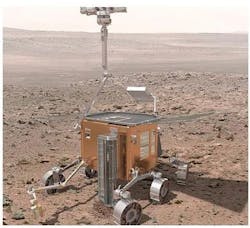Powering aerospace & defense: an Interview with Saft Batteries
An interview with Jeff Helm, Defense Sales Manager, Saft Batteries
What are aerospace and defense customers requesting when it comes to power electronics?
Defense customers are always looking for ways to support the ever-increasing demands for reliable power and energy in the field, while also increasing their autonomy, reducing the size of their systems, and increasing the safety of the troops. Saft has seen increased interest in lithium iron phosphate electrochemistry, which operates at a slightly lower voltage than traditional nickel cobalt aluminum (NCA) Li-ion electrochemistry, but offers some resistance to abuse conditions that are typically encountered in the field.
In addition, defense customers are continuously looking at batteries as an option to store energy in remote locations of modern military missions. They are aiming to reduce their dependence on fuel and traditional sources of power, while also storing enough power to support their ever increasing power demands. There has been a focus on going “off the grid” and powering remote operating bases with microgrids which typically involves the use of a generator in combination with some other energy storage source. Saft has developed an Advanced Renewable Energy System (ADRES) battery based on lithium iron phosphate technology, as an all-in-one 28V energy storage solution with a built-in charger that is capable of providing critical power to equipment on bases when not connected to a grid.
Saft won contracts to deliver batteries for military ground vehicles and aircraft this year. How have the power needs of military vehicles changed?
As the complexity of military equipment and vehicles grow to support modern day missions, so do the size and power requirements. A vintage vehicle, for example, only required enough power to start the vehicle and power the radios. Today, however, modern vehicles have a myriad of sensors, jammers, and intelligent systems that require more power than what legacy batteries can supply.
The standard power supply for military vehicles has traditionally been two 12V lead-acid batteries which are heavy and don’t feature any smart electronics to help the end user diagnose the state of health of the battery. Recognizing the need for the military to reduce the size and weight of its systems while increasing power and energy density, as well as safety, Saft has developed the Xcelion 6T, a 24V Li-ion battery system that offers a drop-in replacement two lead-acid batteries in military vehicles. The Xcelion 6T is based on Saft’s Super-Phosphate technology which offers many safety benefits. The battery is also features available CANBus communications that relay vital information, including state-of-charge (%), battery and cell voltages, temperatures, and battery diagnostics. Additionally, 60Ah design provides greater power density and energy efficiency with long-lasting performance that reduces logistical burdens to store, transport and distribute replacement batteries.
What advice would you offer for selecting an energy storage technology or device?
Engineers should consider the entire package when choosing an energy storage technology. There are many battery pack makers that can offer low cost solutions using COTS technology, and while these solutions are low cost and may be able to perform mission requirements, they may not be as safe or reliable as a battery that has been engineered and designed from the cell level to the battery system level complete with electronics.
Saft is a company focused on innovation. The company reinvests its profits into its R&D and is continuously researching new technologies, new form factors, and new processes to advance its battery technologies.
Saft (Euronext:Saft), with headquarters in Paris, is a manufacturer of nickel batteries and primary lithium batteries for the industrial infrastructure and processes, transportation, civil and military electronics’ markets. Saft offers space and defense batteries with its Li-ion technologies, which are also deployed in the energy storage, transportation, and telecommunication network markets.
You might also like:
Subscribe today to receive all the latest aerospace technology and engineering news, delivered directly to your e-mail inbox twice a week (Tuesdays and Thursdays). Sign upfor your free subscription to the Intelligent Inbox e-newsletter at http://www.intelligent-aerospace.com/subscribe.html.
Connect with Intelligent Aerospace on social media: Twitter (@IntelligentAero), LinkedIn,Google+, and Instagram.


